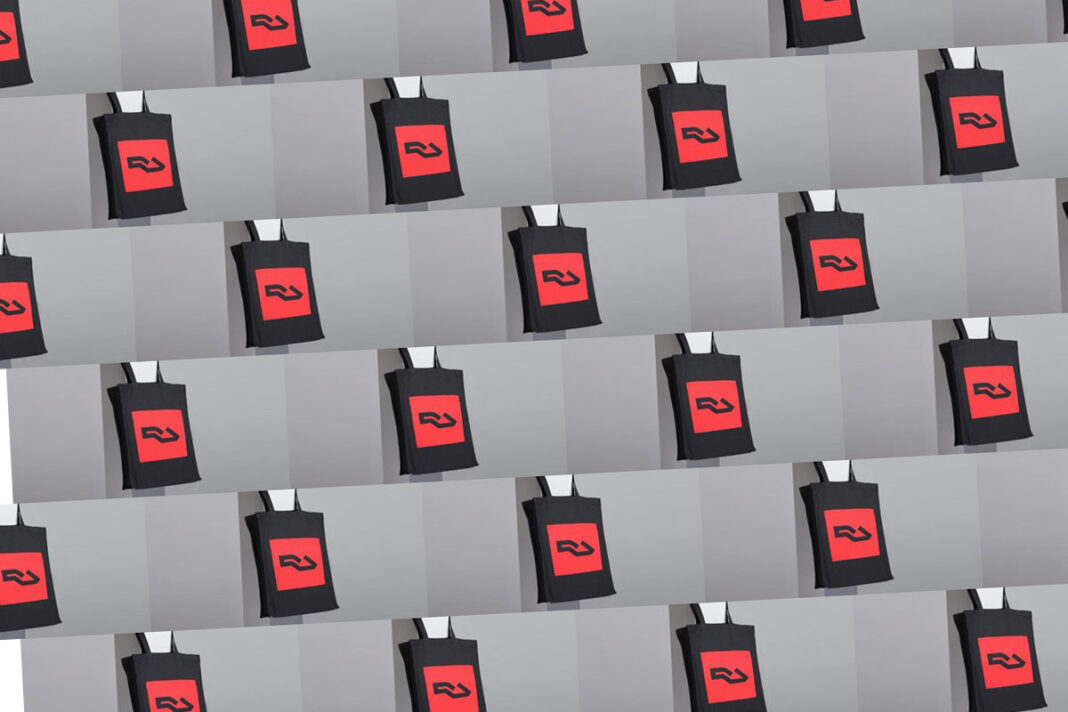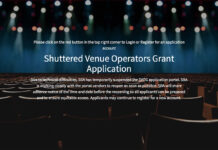It started as a petition addressed to no one in power and no one in particular. It was also a list, and it was also like one of those inspirational memes that influencers post on Instagram about living your best life, authentically.
It was Resident Advisor’s “Save Our Scene” feature and it went viral almost immediately as the pandemic spawned a series of worldwide lockdowns that would change club culture forever.
It was a strange “feature,” quite unlike any that the website had published before. Aside from a “petition” that wasn’t addressed to anyone, it was a petition that made no actual “demands,” either. Instead “Save Our Scene” offered tepid suggestions like “buy music” and “offer support” that anyone who makes, sells or listens to electronic music could agree with. Thousands of people did and signed it.
But there was one thing that stood out to me immediately. In fact, it made me angry. I was astonished that few of signers seemed to notice. Or — as often happens — said nothing if they did.
The third item on the list urged members of the scene to “Skip your refund.” Citing “these extraordinary circumstances,” RA urged all ticket holders who can afford it “to not request a refund for canceled events.” This was ostensibly to help promoters — “an essential part of club culture,” RA reminded us. RA even equated not asking for a refund with “making a donation.”
But who was that donation for?
Nobody called out the obvious fact that “Save Our Scene” was veering uncomfortably close to “Save Resident Advisor’s Business Model.”
As a leading ticket broker, Resident Advisor’s bold suggestion that thousands of fans not cancel tickets but eat the loss seemed incredibly self-serving to me. By urging people not to ask for refunds and pocketing their ticket fees and surcharges, Resident Advisor stood to gain a lot — and directly — from this segment of the “Save Our Scene” petition.
Because while they were “asking” people not to request refunds, RA was also informing people that RA’s own ticket fees paid for by customers weren’t going to be refunded anyway.
Ask Not What RA Can Do For You, Ask What You Can Do For RA.
At the same time “Save Our Scene” was published, Resident Advisor also published a second statement. This second statement used the same, wholesome and supportive language of the “Save Our Scene” petition to justify RA’s refusal to refund ticket fees.
“We need to support our scene,” Resident Advisor wrote in this second statement (notably less viral than the first). While they would consent to process refunds normally, Resident Advisor’s own fees remained non-refundable. “We need to retain the full booking fee,” they said, to “cover the costs of providing our ticket services.” RA added that if you really needed the money or “strongly disagreed” with this policy, they would go ahead and process the fee refund anyway. The statement directed those who insisted on a refund of their ticket fee to an application form (and more on that in a moment).
Resident Advisor would claim that “at least £1 million” was “retained” in the scene because of Save Our Scene’s anti-refund campaign. How much was “retained” by Resident Advisor themselves? They looked at the data to compute the first number; and surely, as a matter of good bookkeeping, they also kept an accounting of the last.
It is remarkable that nobody inside RA (which is far from a moral vacuum) called this out — that “Save Our Scene” was veering uncomfortably close to “Save Resident Advisor’s Stupid Business Model.”
Very few people on the outside called it out either. 5 Mag posted a mild criticism dealing specifically with RA’s position on pocketing ticket fees. Our view is that nobody (much less a large entity like RA) should ever shame you about asking for your money back for a canceled event — especially at a time when a lot of us were thrown out of work and left by feckless governments to fend for ourselves.
Everyone around the world is being pressured to give up cancellation and booking fees. I don't think the onus should be on customers to specifically ask for it.
Ref: pic.twitter.com/2khi8RvaYr
— 5 Mag Dot Net (@5Magazine) March 19, 2020
It’s also well known in customer service that erecting roadblocks via labyrinths of long lines, voice mail systems and customer service forms leads to a significant number giving up on their claim in frustration. They’re designed to frustrate.
To petition RA for a refund of their ticket fee, supplicants (those who “strongly disagreed” with their policy) were sent to a generic contact page with seven options from a pull-down menu. None of those options specifically concerned a refund of RA’s ticket fees. Despite how trivial it would be to add an option for fee refunds, RA still hasn’t added it seven nine months later.
For the most part, this went unnoticed. “Save Our Scene” went viral; criticism over RA’s conflict of interest did not. I guess people had other concerns at the time — like food, rent, viral transmission and death.
Platitudes like “Buy Music” and “Offer and Receive Support” are dull and dopey when they’re followed by “Let Us Keep Your Cash, We Can Spend It Better.”
But it all came back again in October when it was revealed that Resident Advisor received a million dollars from a grant from the Arts Council England to make up for the loss of their main ticket revenue stream.
(Awkwardly, RA had just published a “sponsored post” showcasing the new CDJ-3000, which was really an ad paid for by Pioneer. Aside from blurring the line between supporting the scene and exploiting it via paid “advertorial,” the post suggests that RA’s revenue streams are perhaps not nearly as dry as has been implied.)
Then, a few days later, DJ streaming giant Boiler Room received a similar payout. Boiler Room has also tried to pivot toward becoming, like RA, the “Techno StubHub,” as 5 Mag reported in the Summer of 2019.
The UK government’s concern for the future of underground computerized ticket brokers — instead of, and perhaps at the expense of, UK venues like Printworks and Oval Space where the ticketed events actually take place — is baffling, to say the least. Both of those venues had their grants denied.
UK techno legend Dave Clarke and others have pointed out that by accepting public money, RA is now open to more public scrutiny on questions such as these. “If you would rather not answer the public,” he wrote in an open letter, “then of course please hand it back and ask for it to be redistributed to either the new DJ/Sound Engineer fund or to some of the clubs that are not run by wealthy people who can easily dip into their pockets. I guarantee this will make you the toast of the scene you claim you are trying to save.”
Nobody is Coming to Save Us. Save Yourself.
It’s doubtful that even a billion dollars in grants to Resident Advisor or Boiler Room would “Save Our Scene.” At best it would support a staff who in the case of RA seems to have about as many people working on squeezing revenue out of the scene as a ticket-selling middleman and enough juiced-up backlinks so their site shows up ahead of the artists they cover in Google’s index as they do on the editorial content.
But this dubious technique of supporting the exploiters of culture rather than the creators of it hasn’t been much different here in the US either. On a much grander level of dodgy grants and friendly payouts, consider the US Treasury Department — staffed at the highest levels by former Wall Street bankers, who like the great Atlantic salmon fish will soon return to the Wall Street investment banks from which they were spawned. These ex- and future-bankers naturally talk to other bankers, and when it came time distribute billions in PPP loans to businesses, who do you think they gave it to? It’d be sensible to handle distribution of the cash themselves; instead they handed it to their banker friends, who frequently funneled it to their best clients and best friends. The money had to seep through layer after layer of financial fuckery before it made first contact with someone who actually works for a living. Giant corporate offices that do little more than license and police trademarks received millions and your corner hardware store clerk can save a place for the rest of us in line at the foodbank.
Look: we’ve all learned some hard lessons from this, or at least I hope we have. But the lesson to be learned from watching bankers and governments shoveling cash at big entities so that some of it filters down to the little guy is an important one. And this is the takeaway: We’re on our own. Nobody is coming to save us. The man will shut down your job and shrug at your empty belly. The always-on-brand cheerleaders of this subculture aren’t your friends and if it comes down to it they’ll be in direct competition for resources with you. And they’ll win. Boiler Room is backed by three venture capitalists. How many are backing you? They’ll represent you when it costs them nothing (just ask a DJ that’s played at Boiler Room, for free) and cover their own asses when it does.
I believe it’s beyond the capability of any entity smaller in size than the state itself to “Save Our Scene.” But platitudes like “Buy Music” and “Offer and Receive Support” are dull and dopey when they’re followed by “Let Us Keep Your Cash, We Can Spend It Better.”
Here are some of our suggestions to save yourself, you don’t need to sign a petition addressed to no one, or pass around a hashtag, and I assure you 5 Mag and myself won’t make a penny no matter what you do:
1. Diversify Your Revenue. No musician can ever count on gig revenue again. In the Spring we published a feature called “Pandemic Strategies” with revenue-generating options that were part of, or in some cases adjacent to, the making of music. Among these are developing a Patreon community, selling off your projects as royalty-free stock music, getting merch designed and constantly replenished and developing sample banks for sale via Splice or Loopmasters. Many of these things are part-and-parcel of a producer’s career and which you may do already but can maximize for non-gig revenue streams.
2. Support People, Not Brands. We wrote an editorial in 5 Mag #184 about the exploitation of house music’s OGs and the importance of supporting them directly. This was before these grant scandals surfaced but the title is appropriate here too. Nobody pays for a Spotify subscription with the sentiment that they’re actually feeding artists. Nobody should support a brand under the same pretense. Don’t rely on your donations filtering through several layers of brands before coming into contact with a single artist while the middlemen snort a little bit of it up every step of the way.
3. Do Your Own Ticketing. There are so many options out there and the narcotic of RA editorial support has blinded promoters to how dangerous it is for an underground scene to rely upon a single entity to handle what was their largest revenue stream but is now the smallest. Whether you agree with anything you read here or you think I’m a dirty commie, some percentage of your potential audience is going to balk at doing business with RA again.
I would guess some venues might also have a problem with it — if they manage to survive.
 This was originally published in 5 Mag issue 185 featuring Tensnake, Joi Cardwell, the Death of the Packard Plant Project, making techno out of political bullshit, the Politik and more. Support 5 Mag by becoming a member for just $1 per issue.
This was originally published in 5 Mag issue 185 featuring Tensnake, Joi Cardwell, the Death of the Packard Plant Project, making techno out of political bullshit, the Politik and more. Support 5 Mag by becoming a member for just $1 per issue.
























[…] TO READ FULL STORY Clik Here! […]
Great article. 5 Mag should interview Dave Clarke, or any other artists that are actually doing something for the scene and artists, producers, event staff, etc.
i haven’t got much time for resident advisor, its mostly political click baiting. not a lot of articles on underground dance music in general. that bailout money from the department of culture was a joke, when there is other people struggling financially.